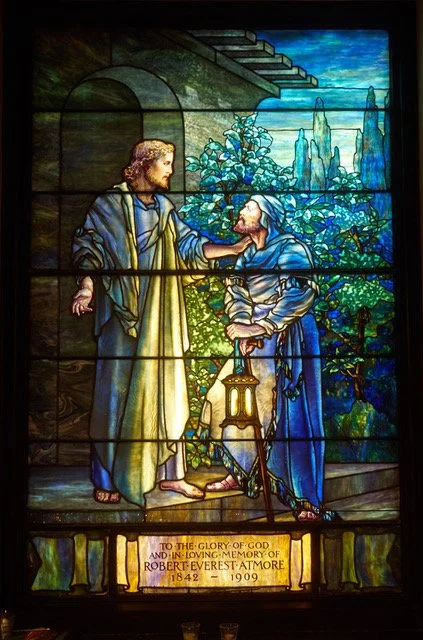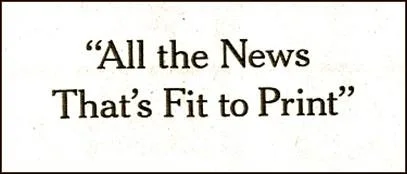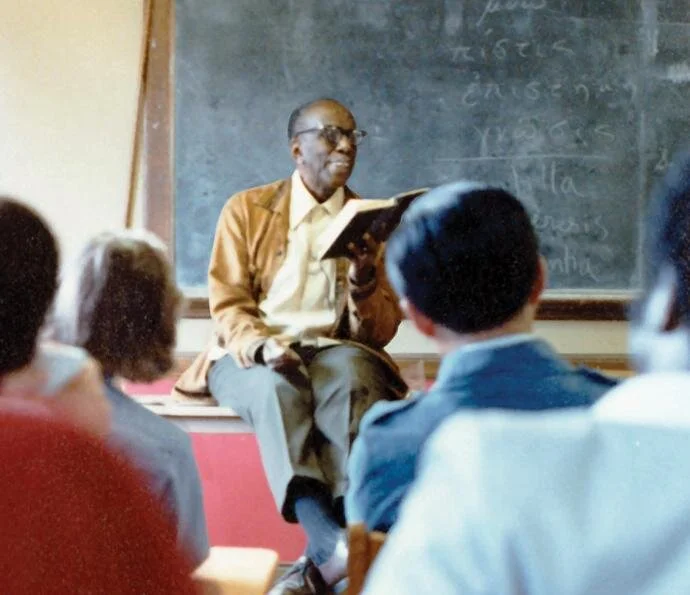Friday Reflection: William Wilberforce
William Wilberforce in old age
Today, I want to build on yesterday’s remembrance of two admirable English social reformers, William Wilberforce and Lord Anthony Ashley-Cooper, by highlighting Wilberforce (1759-1833) who died this week. He’s a fascinating figure with startling connections to our country and time. Though rarely acknowledged, his crusade to abolish the slave trade and slavery in the British Empire through parliamentary legislation, and to reform social attitudes towards slavery, Blacks, and other marginalized groups opened a path for civil and human rights throughout the world that remains in use today.
His impact in the United States appeared 20+ years after his death. In 1856, the first private historically Black college in this country and its surrounding town, built on the Underground Railroad in the fraught free zone abutting slave states, were founded with his name: Wilberforce College, in Wilberforce, Ohio, near Dayton. Two African Americans with Philadelphia connections who’ve appeared in these Reflections taught at the college: Frances Watkins Harper, their first woman faculty soon after its founding, and Dr. Richard R. Wright who, in the early 20th century, also served as its president.
William Wilberforce resides at the heart of what many consider the first human and civil rights movement, born in England in the 1760s. His humanitarian activism beyond abolition ranged wide—from labor and prison reform to smallpox vaccination. Yet his strict evangelical interpretation of Scripture shaped his conservative approaches to other areas, like women’s rights. He lived many of his words: He refused a peerage and gave away the considerable fortune inherited from his merchant family to social causes.
As Minister of the House of Commons, he presented bills forbidding slave trade and slavery itself in relentless “drips” to counter his regular losses to the opposition, until his contingent prevailed to outlaw slave trade in the Empire in 1807, then slavery in 1833.
The campaign officially began in 1789 with a speech deemed, now as then, one of the best ever in Parliament and one of the most important abolitionist speeches in British history. So we hone in on that chapter of his life.
William Wilberforce as a young parliamentarian
The 1780s provided the transformative crucible for Wilberforce’s beliefs and actions. His embrace of abolition came soon after his election to the House of Commons in 1780, while still a student at Cambridge, especially through discussions of slavery with reformist witnesses or onetime participants: James Ramsey, The Rev. John Newton, and The Rev. Thomas Clarkson.
Wilberforce’s commitment to abolition came primarily from his conversion from the hard playing “insouciant [carefree]” of his class to an evangelical Anglican, in 1784-6, while traveling with his college tutor Isaac Milner. He took his new faith and its practice seriously. He read Scripture and prayed every morning. He became friends with the elderly evangelist John Wesley. He applied what he read and believed to what he saw and lived. Slavery was against Scripture, he, like others, concluded.
When he asked two advisors how to reconcile his new faith with his parliamentary role, both responded: stay. Newton told him God could use him in politics. Friend William Pitt (then Prime Minister), a non-believer, wrote to Wilberforce, “Surely, the principles of Christianity lead to action as well as meditation.” His politics would thus gain heart, his faith a mission. As a Christian social activist in Parliament, he would implement the Gospel within government and, in secular form, preach it to a powerful community. Thus redirected, his infectious witty passion became a missionary zeal that arrested and convinced.
Wilberforce formulated two missions: to abolish slave trade and slavery and to reform social values in influential circles to a more humane sensitivity. He found help among formidable neighbors, evangelical social activists dubbed The Clapham Saints, who rallied under his leadership to widely change views of slavery and humanitarian problems throughout the UK.
For his parliamentary role, however, another quality proved essential. This diminutive (5’3), frail young man became a famously magnetic speaker, with a rivetingly melodious voice, expressive rhetorical style, and persuasive arguments. Biographer James Boswell commented that, when he observed Wilberforce speak, he watched a mere “shrimp” grow into a “whale” with the grandeur of his address.
Which brings us to the abolition speech on May 12, 1789. Because official transcripts weren’t yet standard, this long-awaited speech is poorly documented. The many newspaper accounts of it are compromised by environmental noise, reporters’ varying styles, and the papers’ politics (Brycchan Carey, “Wilberforce’s Sentimental Rhetoric . . . ” [Carey_AOJ_2003.pdf]). We know he spoke for four hours, with a powerful argument and pathos that together aimed for the heart and head despite some shakily delivered statistics.
Wilberforce argued for the abolition of slave trade as a first step to ending slavery in the Empire. He openly avoided vilifying the West Indies interests or, implicitly, the Crown that depended on their earnings. Rather, he built an inclusive “we” case that implicated all parliamentarians. This is one published version: “I mean not to accuse anyone, but to take the shame upon myself, in common, indeed, with the whole parliament of Great Britain, for having suffered this horrid trade to be carried on under their authority. We are all guilty—we ought all to plead guilty . . . ” (Carey, 298).
The greatest guilt: cruelty to the enslaved. Demolishing official reports, Wilberforce described the documented suffering of those forced to the Caribbean on the dread Middle Passage. Pamphlets standardly showcased such evidence but Wilberforce’s rhetorical powers devastated his audience with painful images.
He aimed to persuade his fellow “us” to action, with empathy and heartfelt sympathy for suffering and sufferers, a Christian principle he conveyed without religious vocabulary. Running throughout was the assertion that the enslaved were human like us, an essential point in denying they were chattel or inferior. His use of the guilty “we” has a Christian counterpart emphasized by evangelicals, that all men are sinners who should forgive others as they themselves seek redemption. Wilberforce deployed, as Carey noted, the gentler language of 18th-c. sensibility (emphasis on feelings, intuition, and the senses) and moral philosophy without the “fulminations” of the evangelical.
Though the speech won few votes, its message propelled abolition to eventual victory throughout the Empire and, indirectly, in the United States. For his parliamentary achievements and profound reforms to social attitudes that spread across the globe, Wilberforce deserves our gratitude.
Today, it is moving to witness the solidarity of those engaged in civil and human rights over four centuries, from the campaigns of the Shrimp and his formidable colleagues into the 1830s to the struggle towards abolition in the US thereafter, civil rights worldwide through the 20th century, and still yet, today’s Black Lives Matter. How might we participate?
I close with an episode that, though I haven’t confirmed it yet, encapsulates this unique reformer and his significance for us. A celebrated vocalist, Wilberforce allegedly sang Amazing Grace to cronies at raucous play, pointedly dedicating what he called an ex-slaver’s hymnal thanks for redemption to the pro-slavery royal Duke of Clarence. That former slaver was Wilberforce’s mentor and minister, John Newton, who wrote Amazing Grace in 1772 as lyrics to a church hymn for his parish in Olney. It was sung to various tunes until 1835, when it became regularly performed to the melody familiar today, originally for the folk song New Britain. Wilberforce’s association with Amazing Grace and its author, and his political use of the hymn well before the American civil rights movement, provide the central theme of the 2006 movie and the 2015 Broadway musical about Wilberforce entitled Amazing Grace.
This reported performance in turn of the century England gives us pause to reflect. A public figure uses his famous voice to again protest inhumanity—this time singing a haunting, unfamiliar church hymn at a boisterous club—and to celebrate its author’s perilous journey to redemption as inspiration for others. As it soon was. And still is. Around the world. Amazing.
—Suzanne Glover Lindsay, St. Stephen’s historian and curator










